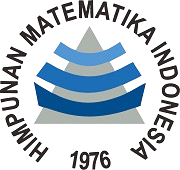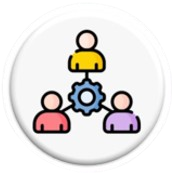Mathematical Literacy as a Key Competency for Maritime Education: Systematic Review of Cadet Competencies
DOI:
https://doi.org/10.30736/voj.v6i2.1112Keywords:
Mathematical Literacy, Maritime Education, Systematic Literature Review, Cadet CompetenciesAbstract
This study discusses the role of mathematical literacy as the main competency that cadets need to have in the field of maritime education. Through a systematic literature review (SLR), the mathematical literacy competencies needed by cadets in the maritime field are navigation, problem solving, use of modern technology, operational management, critical and logical thinking, and accurate data-based decision making. This systematic review provides an illustration of literacy mastery Mathematics not only supports cadets' understanding of basic maritime concepts, but also improves cadets' abilities in dealing with challenges or unexpected situations on board ships and while at anchor. Therefore, developing mathematical literacy must be a priority in cadet education and training programs to produce graduates who are competent and ready to face the complexity of the global maritime industry.
Downloads
References
Akakpo, G. S. (2016). The Role and Relevance of Mathematics in the Maritime Industry. African Journal of Educational Studies in Mathematics and Sciences, 12, 75–86.
Akbar, V. (2017). Aplikasi Graf dalam Menentukan Jalur Pelayaran Indonesia.
Azmi, S. U., Sukestiyarno, & Rochmad. (2020). Pengaruh Kemampuan Literasi Matematika pada Pembelajaran 4.0. Seminar Nasional Pascasarjana 2020, 564–569. https://proceeding.unnes.ac.id/index.php/snpasca/article/download/653/570
Fachrudin, A. D., & Juniati, D. (2023). Kinds of Mathematical Thinking Addressed in Geometry Research in Schools: A Systematic Review. Jurnal Riset Pendidikan Dan Inovasi Pembelajaran Matematika (JRPIPM), 6(2), 154–165. https://doi.org/10.26740/jrpipm.v6n2.p154-165
Hong, J., Thakuriah, P. (Vonu), Mason, P., & Lido, C. (2020). The role of numeracy and financial literacy skills in the relationship between information and communication technology use and travel behaviour. Travel Behaviour and Society, 21(August), 257–264. https://doi.org/10.1016/j.tbs.2020.07.007
Jablonka, E. (2003). Mathematical Literacy. In A. J. Bishop et Al. (Eds.), Second International Handbook of Mathematics Education, 75–102. https://doi.org/10.1007/978-94-010-0273-8_4
Jaenudin, R., Chotimah, U., Farida, F., & Syarifuddin, S. (2020). Student Development Zone: Higher Order Thinking Skills (Hots) in Critical Thinking Orientation. International Journal of Multicultural and Multireligious Understanding, 7(9), 11. https://doi.org/10.18415/ijmmu.v7i9.1884
Lusiani, L., & Suprianto, S. (2024). Kemampuan Literasi Matematis pada Taruna Ketatalaksanaan Pelayaran Niaga dalam Perkuliahan Matematika. 8(1), 88–96. https://doi.org/https://doi.org/10.52475/saintara.v8i1.281
Moher, D., Liberati, A., Tetzlaff, J., Altman, D. G., Antes, G., Atkins, D., Barbour, V., Barrowman, N., Berlin, J. A., Clark, J., Clarke, M., Cook, D., D’Amico, R., Deeks, J. J., Devereaux, P. J., Dickersin, K., Egger, M., Ernst, E., Gøtzsche, P. C., … Tugwell, P. (2009). Preferred Reporting Items for Systematic Reviews and Meta-Analyses: The PRISMA Statement. PLoS Medicine, 6(7). https://doi.org/10.1371/journal.pmed.1000097
Mykolaivna, C. M. (2023). Contemporary methods of mathematical training of future navigators. https://doi.org/10.36550/2415-7988-2022-1-207-347-350
Napitupulu, E. E. (2008). Mengembangkan Strategi dan Kemampuan Siswa Memecahkan Masalah Matematik. PYTHAGORAS Jurnal Pendidikan Matematika, 4(2), 26–36. https://doi.org/10.21831/pg.v4i2.557
Ningrum, F. V., Nugroho, P. B., & Wulandari, I. (2015). The Integration of History , Technology , Engineering , Art , and Science Into Trigonometry of Senior High / Vocational Middle School. May, 17–19.
OECD. (2019). Programme for International Student Assessment (PISA) Results from PISA 2018. Oecd, 1–10.
Page, M. J., McKenzie, J. E., Bossuyt, P. M., Boutron, I., Hoffmann, T. C., Mulrow, C. D., Shamseer, L., Tetzlaff, J. M., Akl, E. A., Brennan, S. E., Chou, R., Glanville, J., Grimshaw, J. M., Hróbjartsson, A., Lalu, M. M., Li, T., Loder, E. W., Mayo-Wilson, E., McDonald, S., … Moher, D. (2021). The PRISMA 2020 statement: An updated guideline for reporting systematic reviews. The BMJ, 372. https://doi.org/10.1136/bmj.n71
Pillai, S. P. M., Galloway, G., & Adu, E. O. (2017). Comparative Studies of Mathematical Literacy/Education: A Literature Review. International Journal of Educational Sciences, 16(1–3), 67–72. https://doi.org/10.1080/09751122.2017.1311625
Purba, Z. Wi. (2022). Analisis Operasional Radar Secara Optimal Saat Bernavigasi di KM Derya Mas. Politeknik Ilmu Pelayaran Makassar.
Sohaimi, A. S., Sari, D. M., Purba, R. D. S., & Badawi, R. (2022). Analysis of Mathematics Literacy Ability. Logaritma : Jurnal Ilmu-Ilmu Pendidikan Dan Sains, 10(2), 181–194. https://doi.org/10.24952/logaritma.v10i2.6143
Downloads
Published
How to Cite
Issue
Section
License
Copyright (c) 2024 Novitasari Novitasari, Eka Nurmala Sari Agustina, Achmad Dhany Fachrudin, Saiful Irfan

This work is licensed under a Creative Commons Attribution-NonCommercial-ShareAlike 4.0 International License.
Copyright:
Authors who publish their manuscripts in this Journal agree to the following conditions:
- Copyright of any article on Vygotsky: Jurnal Pendidikan Matematika dan Matematika is held solely by the author under the Creative Commons Attribution 4.0 International license (CC BY NC SA).
- Authors can submit papers separately, arrange non-exclusive distribution of manuscripts that have been published in this journal into other versions (e.g. sending to the author's institutional repository, publication in a book, etc.) by acknowledging that the manuscript has been published for the first time in Vygotsky: Jurnal Pendidikan Matematika dan Matematika.
License:
Vygotsky: Jurnal Pendidikan Matematika dan Matematika is published under the terms of the Creative Commons Attribution 4.0 International License (CC BY NC SA). This license permits anyone to copy and redistribute this material in any form or format, compile, modify and develop this material for any purpose as long as it is not for commercial purposes. Additionally, anyone must provide credit and distribute contributions under the license of the creator of the original work.







